At an open discussion organised by the Raza Foundation in collaboration with the Civil Services Officers' Institute recently, a panel consisting of renowned architect Vikram Lall, Bharatanatyam dancer and Guru Rama Vaidyanathan and poet and film writer Udayan Vajpeyi discussed the concept of "Novelty in Performing Arts".
Indian culture and art forms that have preserved their core traditions for millennia are being reduced to a mere "spectacle" today in the race to keep up with the fast changing times, according to leading art practitioners.
At an open discussion organised by the Raza Foundation in collaboration with the Civil Services Officers' Institute recently, a panel consisting of renowned architect Vikram Lall, Bharatanatyam dancer and Guru Rama Vaidyanathan and poet and film writer Udayan Vajpeyi discussed the concept of "Novelty in Performing Arts".
Lall, who designed Delhi's Akshardham temple and Patna's Buddha Smriti Park, said that India is renowned for its musical and other art traditions that have evolved over time, but these continue to have a thread that ties them across centuries.
"In architecture, we talk about transforming ideas and not transferring them. Change and innovation is what make art forms survive," he said.
However, the modern tendency of making a show and a spectacle out of everything is diminishing both art and the idea of innovation, he added.
"A spectacle presumes a stupid audience," said Udayan Vajpeyi. He noted that the 'rasik' or the appreciative audience member, is an integral part of an Indian performance or concert.
"We tend to copy the West mindlessly in so many things.
For instance we dim the lights in a concert hall for a classical music performance, but in India the artiste responds to the audience, they improvise according to audience reaction, it is spontaneous."
He said the novelty in Indian art forms comes from the teaching of the art. Western traditions aim for sameness, but the Indian guru lets the disciple learn according to their own understanding and disposition, which is a great method of learning and encourages innovation.
Dancer Rama Vaidyanathan said artistes have to look beyond the classroom, the gharanas and traditions and will have to free themselves from these shackles to bring freshness to their art.
"For a dancer, novelty does not happen forcefully or overnight. It comes after years and years of creating dialogues with the dance form and with practice.
"This lays the foundation to create new things and push boundaries. It is an organic process and it is good for the art form. When I work with Kathak or Odissi artistes, I learn things," Vaidyanathan said.
"I have to look beyond my dance form to create something new in my dance form. But that does not mean you are abandoning the core principles of your dance form, because it is already a part of who you are."
She said she hopes to make dance secular, transcending the boundaries of cultures and religion, and use it as a medium to address social issues.
Eminent Hindi poet and managing trustee of Raza Foundation Ashok Vajpeyi noted that people in the modern times tend to see performing arts as very repetitive, because as an audience they are moved by "a questioning of traditions".
"But in the Indian context, the deviation and questioning takes place within tradition. One doesn't have to go out, and this is seldom understood," he said.
"Years ago, when Pandit Ravi Shankar started having long alaaps on the sitar, it was something not done before. He did that on his own, as an individual artiste, but that has now become a tradition."
Our performing arts have not been eroded as a result of introduction of novel things, they have been kept alive by it, he added.
The discussion was part of the new monthly series titled 'Art Dialogues', introduced by the Raza Foundation, featuring expert practitioners from the world of ideas, literature, visual arts, performing arts and various other disciplines.
(This article has not been edited by DNA's editorial team and is auto-generated from an agency feed.)
![submenu-img]() Viral video: Ghana man smashes world record by hugging over 1,100 trees in just one hour
Viral video: Ghana man smashes world record by hugging over 1,100 trees in just one hour![submenu-img]() This actress, who gave blockbusters, starved to look good, fainted at many events; later was found dead at...
This actress, who gave blockbusters, starved to look good, fainted at many events; later was found dead at...![submenu-img]() Taarak Mehta actor Gurucharan Singh operated more than 10 bank accounts: Report
Taarak Mehta actor Gurucharan Singh operated more than 10 bank accounts: Report![submenu-img]() Ambani, Adani, Tata will move to Dubai if…: Economist shares insights on inheritance tax
Ambani, Adani, Tata will move to Dubai if…: Economist shares insights on inheritance tax![submenu-img]() Cargo plane lands without front wheels in terrifying viral video, watch
Cargo plane lands without front wheels in terrifying viral video, watch![submenu-img]() DNA Verified: Is CAA an anti-Muslim law? Centre terms news report as 'misleading'
DNA Verified: Is CAA an anti-Muslim law? Centre terms news report as 'misleading'![submenu-img]() DNA Verified: Lok Sabha Elections 2024 to be held on April 19? Know truth behind viral message
DNA Verified: Lok Sabha Elections 2024 to be held on April 19? Know truth behind viral message![submenu-img]() DNA Verified: Modi govt giving students free laptops under 'One Student One Laptop' scheme? Know truth here
DNA Verified: Modi govt giving students free laptops under 'One Student One Laptop' scheme? Know truth here![submenu-img]() DNA Verified: Shah Rukh Khan denies reports of his role in release of India's naval officers from Qatar
DNA Verified: Shah Rukh Khan denies reports of his role in release of India's naval officers from Qatar![submenu-img]() DNA Verified: Is govt providing Rs 1.6 lakh benefit to girls under PM Ladli Laxmi Yojana? Know truth
DNA Verified: Is govt providing Rs 1.6 lakh benefit to girls under PM Ladli Laxmi Yojana? Know truth![submenu-img]() Alia Bhatt wears elegant saree made by 163 people over 1965 hours to Met Gala 2024, fans call her ‘princess Jasmine’
Alia Bhatt wears elegant saree made by 163 people over 1965 hours to Met Gala 2024, fans call her ‘princess Jasmine’![submenu-img]() Jr NTR-Lakshmi Pranathi's 13th wedding anniversary: Here's how strangers became soulmates
Jr NTR-Lakshmi Pranathi's 13th wedding anniversary: Here's how strangers became soulmates![submenu-img]() Streaming This Week: Heeramandi, Shaitaan, Manjummel Boys, latest OTT releases to binge-watch
Streaming This Week: Heeramandi, Shaitaan, Manjummel Boys, latest OTT releases to binge-watch![submenu-img]() Remember Ayesha Kapur? Michelle from Black, here's how actress, nutrition coach, entrepreneur looks after 19 years
Remember Ayesha Kapur? Michelle from Black, here's how actress, nutrition coach, entrepreneur looks after 19 years![submenu-img]() Remember Heyy Babyy's cute 'Angel' Juanna Sanghvi? 20 year-old looks unrecognisable now, fans say 'her comeback will...'
Remember Heyy Babyy's cute 'Angel' Juanna Sanghvi? 20 year-old looks unrecognisable now, fans say 'her comeback will...'![submenu-img]() Haryana Political Crisis: Will 3 independent MLAs support withdrawal impact the present Nayab Saini led-BJP government?
Haryana Political Crisis: Will 3 independent MLAs support withdrawal impact the present Nayab Saini led-BJP government?![submenu-img]() DNA Explainer: Why Harvey Weinstein's rape conviction was overturned, will beleaguered Hollywood mogul get out of jail?
DNA Explainer: Why Harvey Weinstein's rape conviction was overturned, will beleaguered Hollywood mogul get out of jail?![submenu-img]() What is inheritance tax?
What is inheritance tax?![submenu-img]() DNA Explainer: What is cloud seeding which is blamed for wreaking havoc in Dubai?
DNA Explainer: What is cloud seeding which is blamed for wreaking havoc in Dubai?![submenu-img]() DNA Explainer: What is Israel's Arrow-3 defence system used to intercept Iran's missile attack?
DNA Explainer: What is Israel's Arrow-3 defence system used to intercept Iran's missile attack?![submenu-img]() This actress, who gave blockbusters, starved to look good, fainted at many events; later was found dead at...
This actress, who gave blockbusters, starved to look good, fainted at many events; later was found dead at...![submenu-img]() Taarak Mehta actor Gurucharan Singh operated more than 10 bank accounts: Report
Taarak Mehta actor Gurucharan Singh operated more than 10 bank accounts: Report![submenu-img]() Aavesham OTT release: When, where to watch Fahadh Faasil's blockbuster action comedy
Aavesham OTT release: When, where to watch Fahadh Faasil's blockbuster action comedy![submenu-img]() Sonakshi Sinha slams trolls for crticising Heeramandi while praising Bridgerton: ‘Bhansali is selling you a…’
Sonakshi Sinha slams trolls for crticising Heeramandi while praising Bridgerton: ‘Bhansali is selling you a…’![submenu-img]() Sanjeev Jha reveals why he cast Chandan Roy in his upcoming film Tirichh: 'He is just like a rubber' | Exclusive
Sanjeev Jha reveals why he cast Chandan Roy in his upcoming film Tirichh: 'He is just like a rubber' | Exclusive![submenu-img]() IPL 2024: Mumbai Indians knocked out after Sunrisers Hyderabad beat Lucknow Super Giants by 10 wickets
IPL 2024: Mumbai Indians knocked out after Sunrisers Hyderabad beat Lucknow Super Giants by 10 wickets![submenu-img]() PBKS vs RCB IPL 2024: Predicted playing XI, live streaming details, weather and pitch report
PBKS vs RCB IPL 2024: Predicted playing XI, live streaming details, weather and pitch report![submenu-img]() PBKS vs RCB IPL 2024 Dream11 prediction: Fantasy cricket tips for Punjab Kings vs Royal Challengers Bengaluru
PBKS vs RCB IPL 2024 Dream11 prediction: Fantasy cricket tips for Punjab Kings vs Royal Challengers Bengaluru![submenu-img]() Watch: Bangladesh cricketer Shakib Al Hassan grabs fan requesting selfie by his neck, video goes viral
Watch: Bangladesh cricketer Shakib Al Hassan grabs fan requesting selfie by his neck, video goes viral![submenu-img]() IPL 2024 Points table, Orange and Purple Cap list after Delhi Capitals beat Rajasthan Royals by 20 runs
IPL 2024 Points table, Orange and Purple Cap list after Delhi Capitals beat Rajasthan Royals by 20 runs![submenu-img]() Viral video: Ghana man smashes world record by hugging over 1,100 trees in just one hour
Viral video: Ghana man smashes world record by hugging over 1,100 trees in just one hour![submenu-img]() Cargo plane lands without front wheels in terrifying viral video, watch
Cargo plane lands without front wheels in terrifying viral video, watch![submenu-img]() Tiger cub mimics its mother in viral video, internet can't help but go aww
Tiger cub mimics its mother in viral video, internet can't help but go aww![submenu-img]() Octopus crawls across dining table in viral video, internet is shocked
Octopus crawls across dining table in viral video, internet is shocked![submenu-img]() This Rs 917 crore high-speed rail bridge took 9 years to build, but it leads nowhere, know why
This Rs 917 crore high-speed rail bridge took 9 years to build, but it leads nowhere, know why 

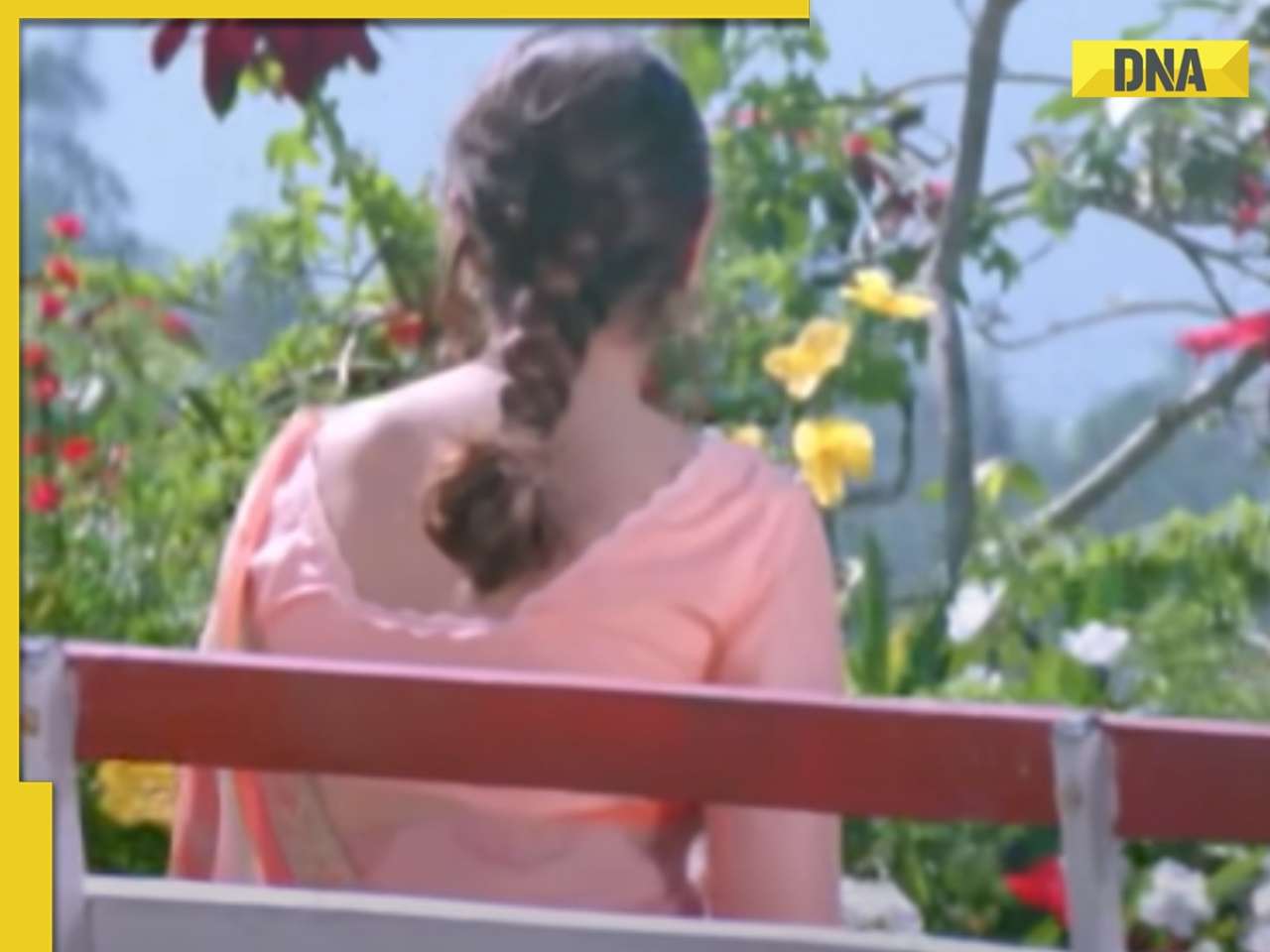























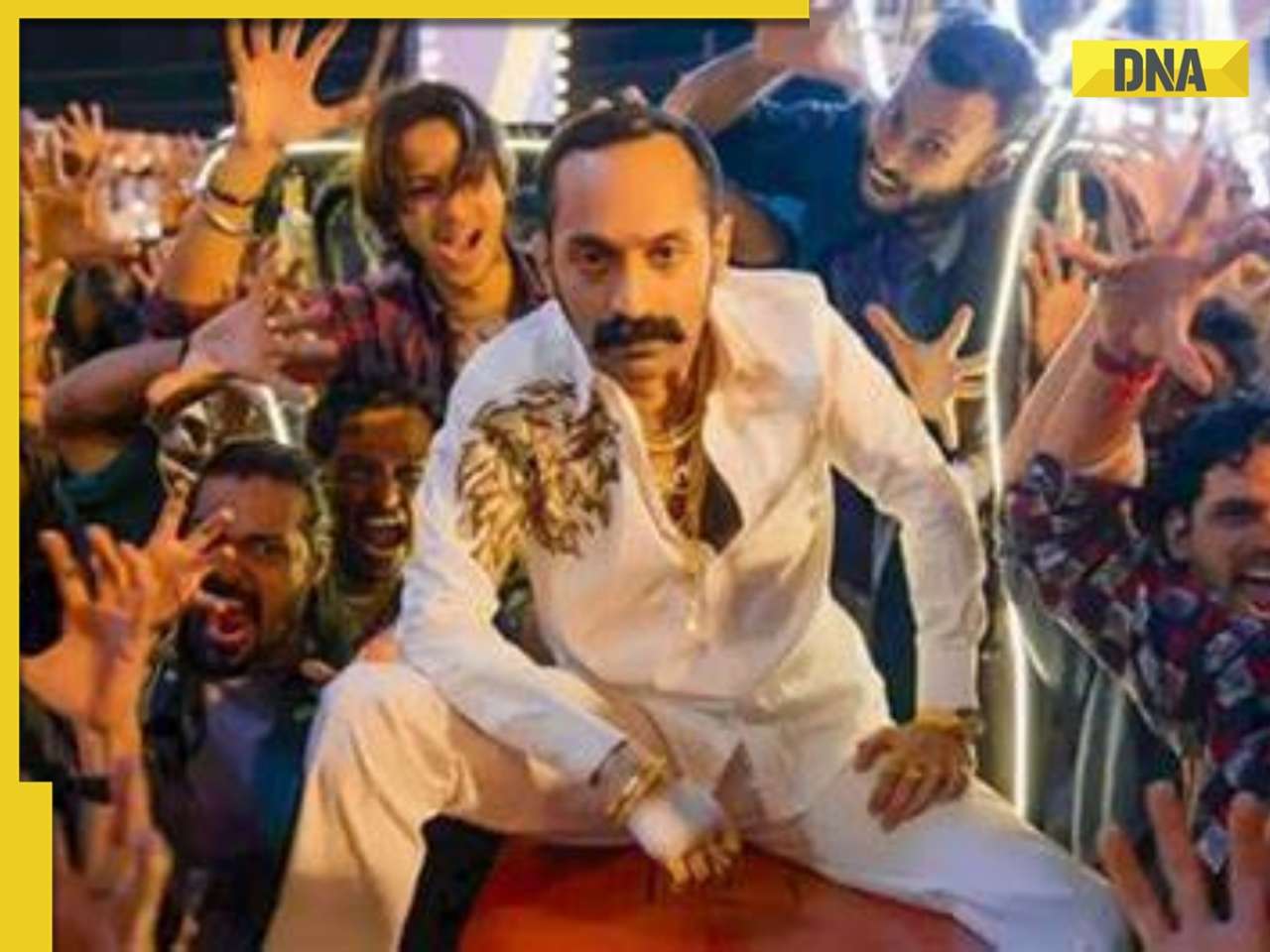
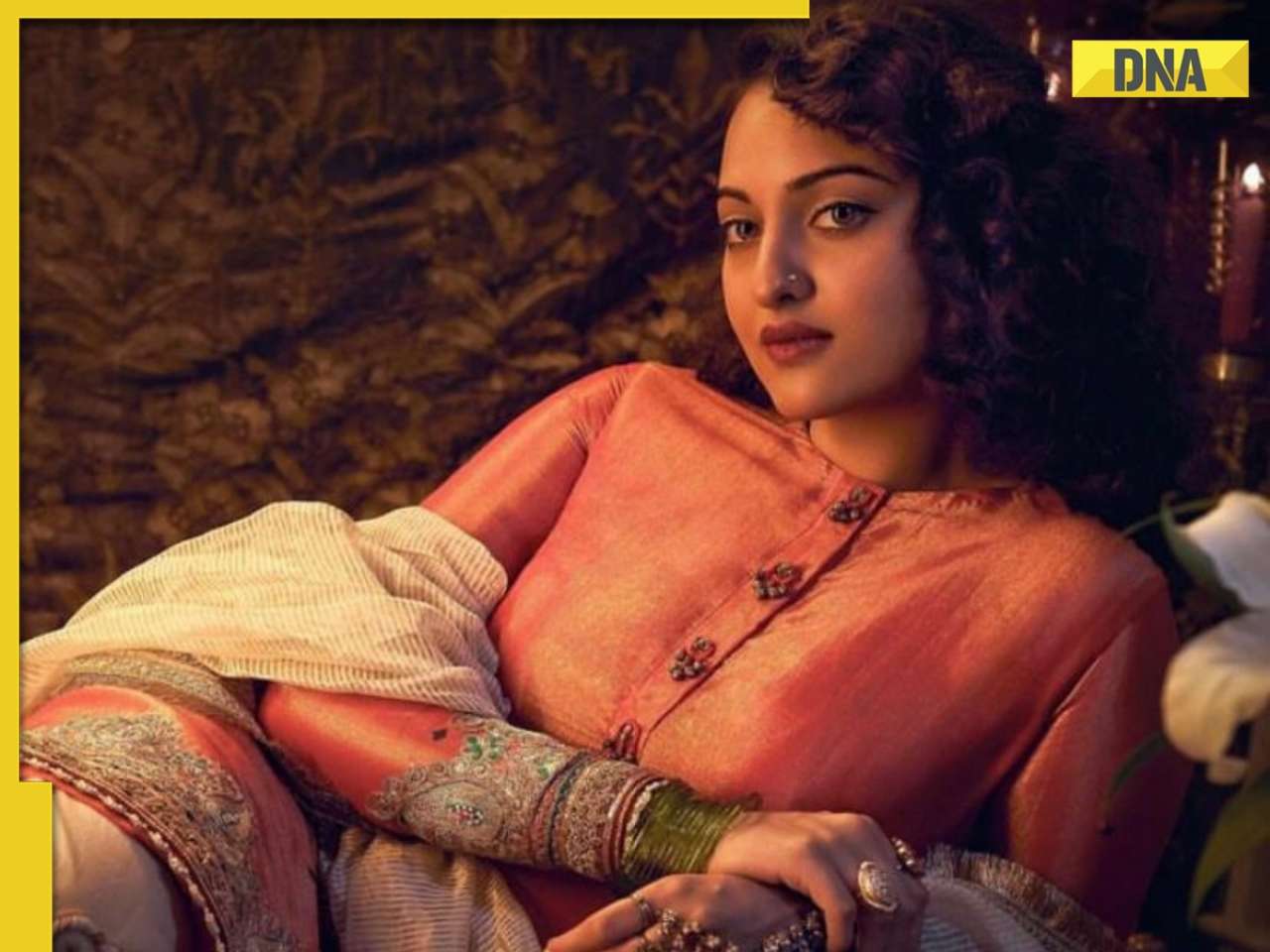
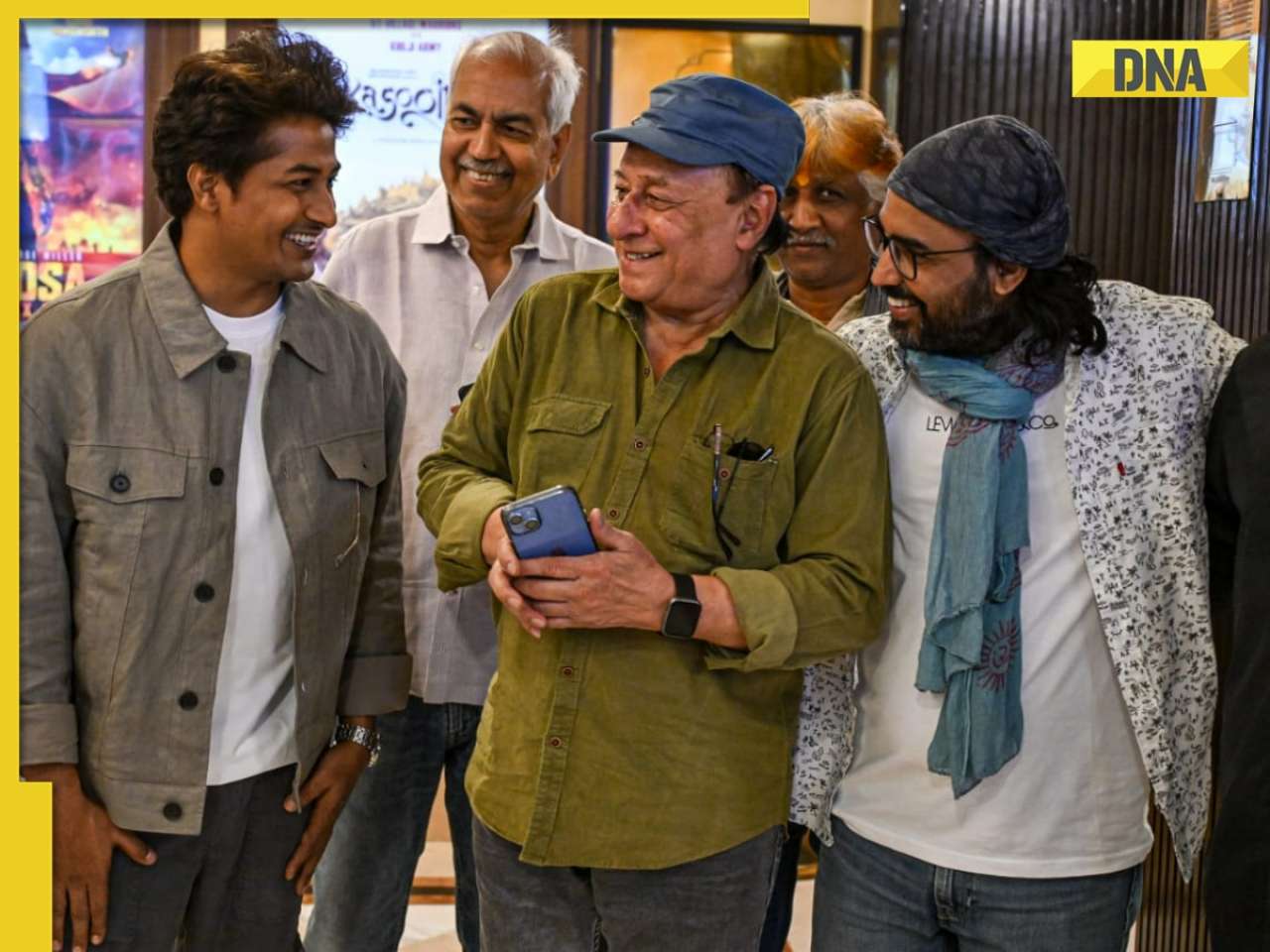

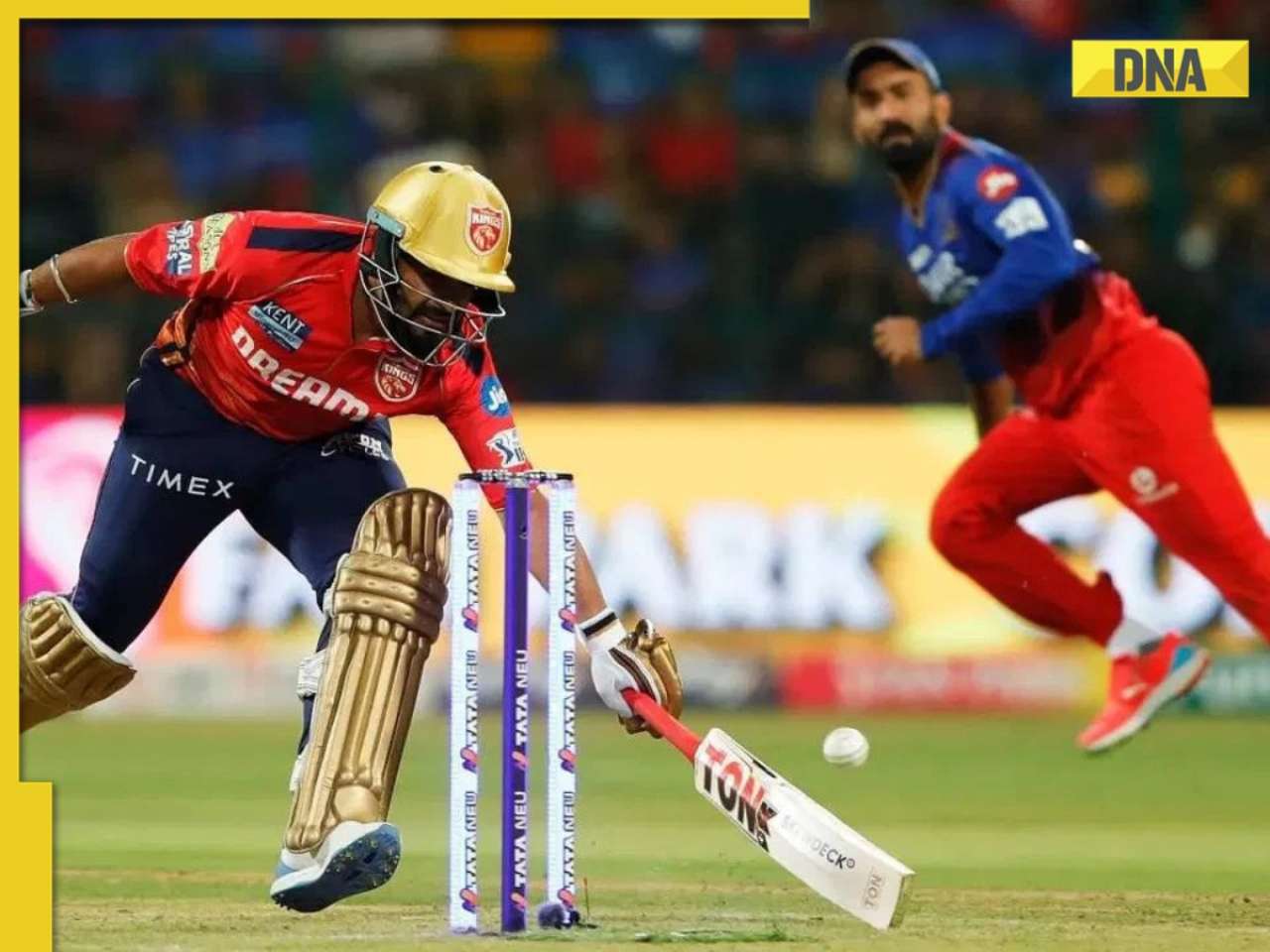
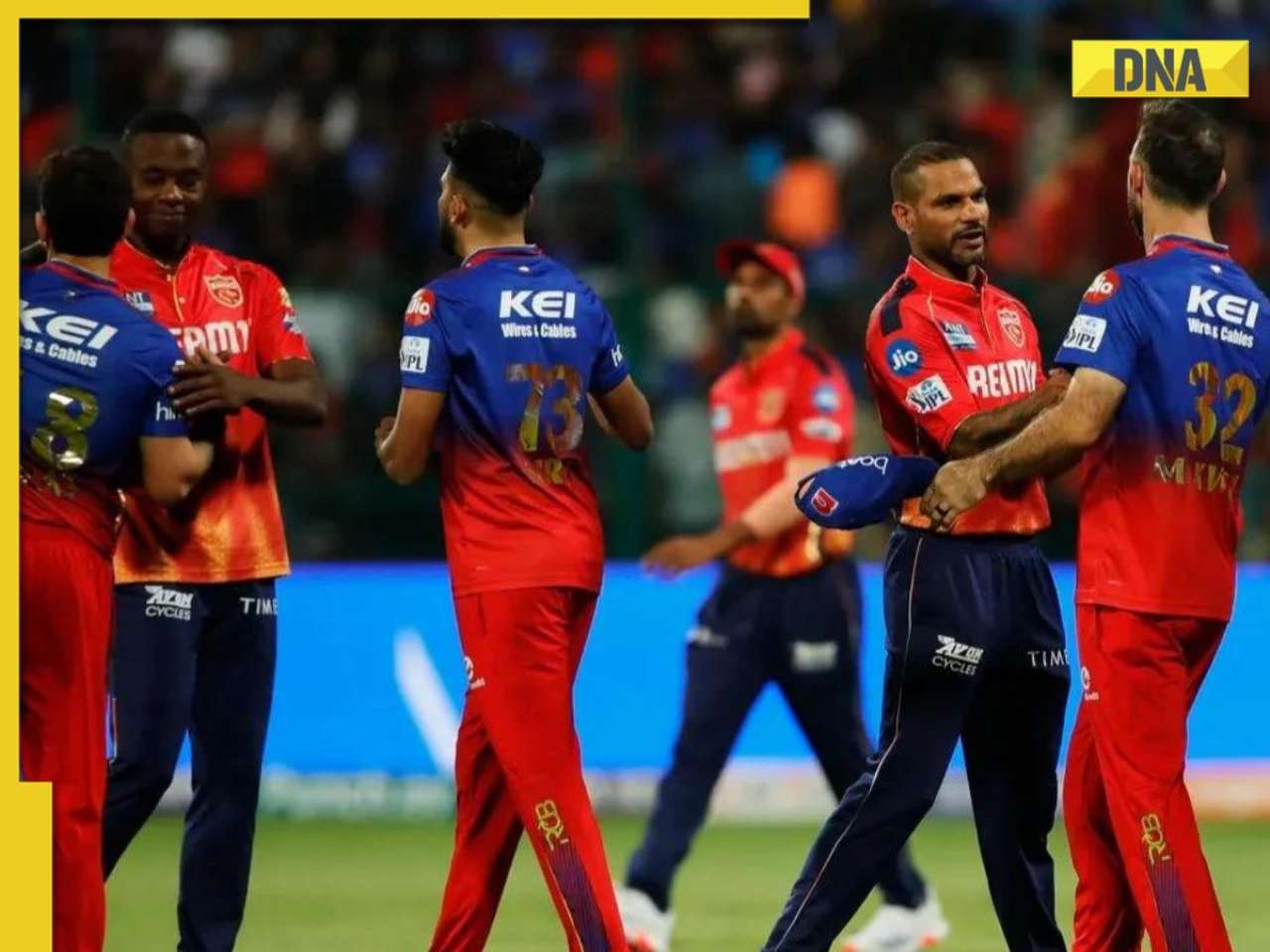







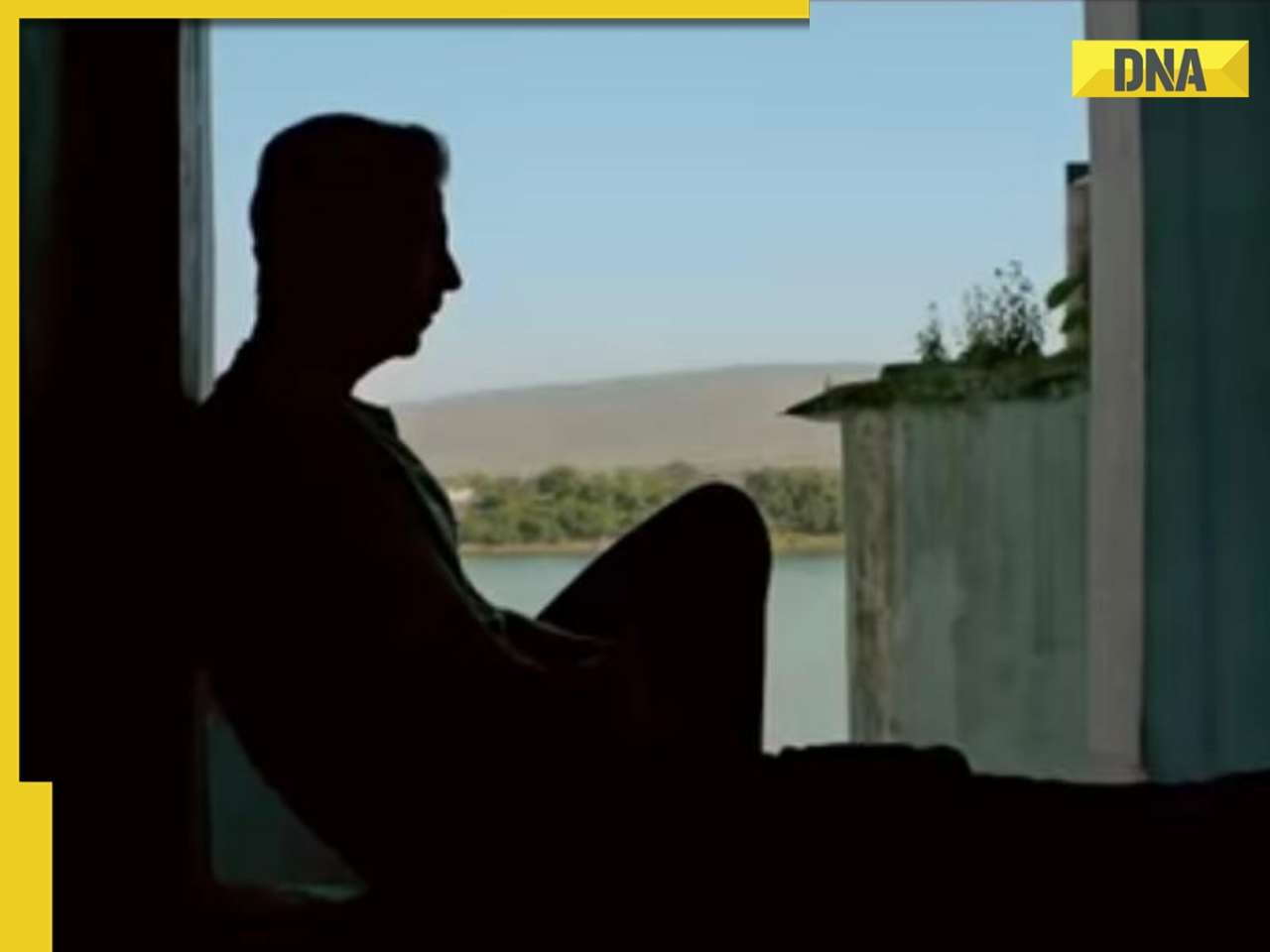











)
)
)
)
)
)